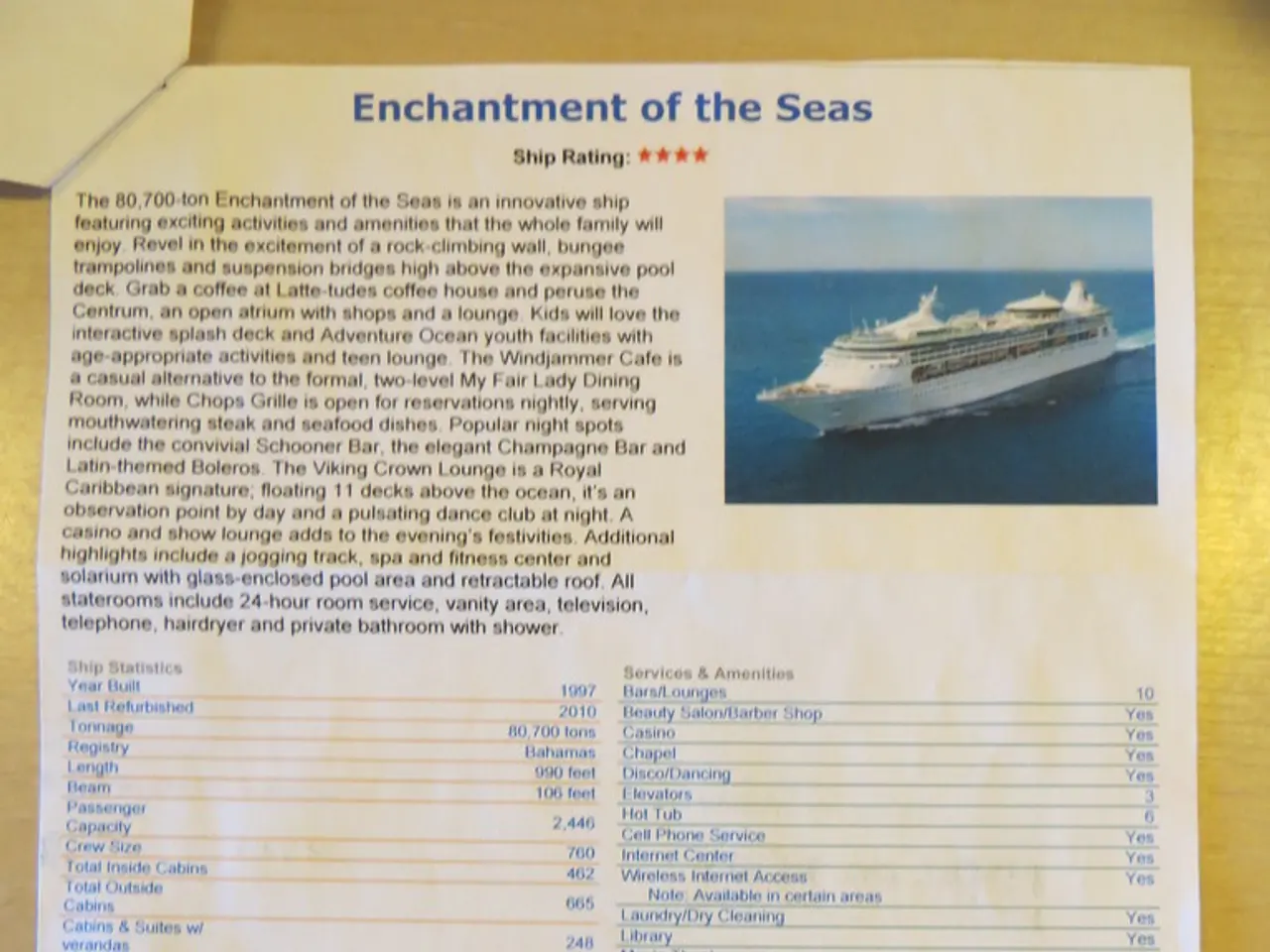Enhanced Active Approach of the UK Towards Taiwan
Last Tuesday, the British government unveiled its "National Security Strategy 2025," a policy paper that integrates Taiwan and the Taiwan Strait into the UK's broader security and Indo-Pacific strategies.
The strategy reflects the UK's growing concern over China's rise and its commitment to maintaining regional stability. The document mentions Taiwan and the Taiwan Strait multiple times, highlighting their strategic significance due to their importance in global trade and supply chains.
One of the key initiatives outlined in the policy paper is the UK's opposition to any unilateral attempts to change the status quo across the Taiwan Strait. The UK advocates for peaceful resolution through dialogue, emphasising its commitment to maintaining regional stability.
Another significant point is the UK's aim to deepen its unofficial relationship with Taiwan by enhancing cooperation in areas such as trade, education, and technological innovation. This cooperation is underpinned by shared democratic values.
The UK has also demonstrated its commitment to regional stability by conducting military deployments, such as the transit of the HMS Spey through the Taiwan Strait. These actions are part of a broader strategy to defend freedom of navigation and maintain a robust security presence in the region.
The UK's engagements in the Indo-Pacific, including partnerships with countries like Japan, South Korea, and Australia, are designed to enhance regional security and stability. This strategy complements the UK's stance on Taiwan by promoting a free and open Indo-Pacific.
The shift from diplomatic ambiguity towards a more proactive and explicit commitment to Taiwan's security and stability is evident in the UK's new stance. The emphasis on cooperation in technology and trade highlights the strategic mutual benefits between Taiwan and the UK, particularly in navigating global supply chain restructuring.
The UK's approach to China's expansionist posture offers a security policy model for other European countries. The British Secretary of State for Foreign, Commonwealth and Development Affairs, David Lammy, addressed this in his speech to the British House of Commons on China policy on the same day.
The HMS Spey's transit through the Taiwan Strait on June 18 was a demonstration of the UK's commitment to freedom of navigation in the Indo-Pacific region. The UK opposes any form of military threats or coercion regarding the Taiwan Strait and is likely to carry out more such deployments in the future.
The UK's policy paper states that people on both sides of the Taiwan Strait should resolve their differences through peaceful and constructive dialogue. The UK does not support any unilateral attempts to change the "status quo" regarding Taiwan and affirms continued efforts to bolster bilateral cooperation.
The UK's stance on the Taiwan Strait issue counters China's unilateral attempts to undermine regional peace and stability. The UK's approach to China's expansionist posture is a part of its vision for "Global Britain," aiming to build a stronger, more secure, and more prosperous UK in a complex and rapidly changing world.
The review was translated by Lin Lee-kai.
- The UK's National Security Strategy 2025, addressing war-and-conflicts and politics, reveals a growing concern about China's rise, particularly in relation to the Taiwan Strait and Indo-Pacific regions.
- In the realm of policy-and-legislation and general-news, the UK advocates for a peaceful resolution to issues surrounding Taiwan, emphasizing dialogue and shared democratic values, while also strengthening trade, education, and technological ties with Taiwan to bolster regional stability.








